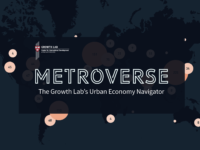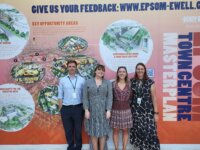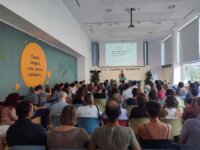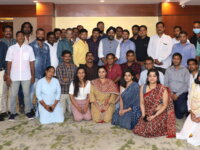Intergenerational fairness—the idea that we should meet the needs of the present without compromising rights of future generations or citizens—is a defining theme of our time. Although most politicians and citizens value fairness, society does not have a way to assess the impact we’re having on future generations and advocate for them. This Framework for Intergenerational Fairness contributes to this. The Framework provides a pragmatic solution, whether as a young citizen, or public…
Innovation Tag: Public Policy
LAB Justice is the first executive education program, tailor-made for the Justice sector. With a customized learning journey, it was designed to help people working for Justice bodies address the challenges faced to deliver more efficient and people-centred services. Focused on three main areas – strategic management, digital transition and leadership in a context of change –, it aims to ensure the necessary skills to implement reform measures, namely those under the Recovery and Resilience…
Metroverse is an urban economy navigator built at the Growth Lab at Harvard University. It is based on over a decade of research on how economies grow and diversify and offers brand new insights on a city's growth prospects by placing its existing technological capabilities and knowhow at the heart of how diversification unfolds. Metroverse was built using a user-centered design process to help city leaders, policymakers and researchers grapple with 21st-century urbanization challenges.
Companies in Emilia-Romagna in Italy are in strong need of personnel with ICT skills. Unfortunately, the education system is currently unable to meet this demand: there are still many young people who do not follow STEM courses. In particular, few girls approach university and specialist courses in science and technology. Digital Girls ER is an active orientation project whose main objective is to bring girls closer to computer science and programming through an innovative method.
The PropTech Engagement Fund was launched in 2021 and has worked with 41 Local Authorities to date on accelerating the adoption of digital citizen engagement tools and transforming community involvement in placemaking. Our ongoing programme is the largest UK Government PropTech Programme, leading on how to work with industry, tech start ups and local governments to increase the diversity and positivity of placemaking conversations and to fast track new digital policy and local housing delivery.
Citizens' assemblies (CAs) were incorporated in the new Law on Municipalities in 2005. As an opportunity to strengthen participatory processes, and to improve participatory decision-making methods at local level, Participation Task Forces (PTFs) were established. The innovative nature of the PTFs is that for the first time elected municipal councillors, appointed municipal officials, and representatives of CAs worked together on developing participatory policy proposals for their municipality.
Tackling the effects of rising urban heat goes beyond objective physical measurements. For sure, technical services are in need of blended indicators about the effects of local policies: under which conditions tree planting, fountains, urban design contribute to reduce island heats. The project has created such tools, but is also willing to take seriously into account the subjectivity, the perceived heat, the sensations of our citizens, for they contribute hugely to our collective resilience.
In an increasingly digital world, Participa.gov represents our vision for civic participation in political decision-making processes. Participa.gov is the Portuguese Public Administration's centralized, cross-cutting platform for facilitating participatory processes at all levels of government. It employs cutting-edge technology to ensure that citizens can actively participate in policy decision-making via secure and transparent mechanisms that foster trust.
Yes, We Rent! has transformed the private rental market by creating a new agent working in partnership with the municipality (hybridization of public policies). Successfully established on 2/2021, “Bloc cooperatiu” is an unprecedented cooperative that gather together tenants willing to search, renovate and rent collectively scattered empty flats, as a way to (self) generate affordable and stable housing targeting low-to-medium income households. It is already managing 61 flats and 105…
Aapti's the Driver Advisory Council (DAC) represents a new framework for engagement between gig workers and platforms in the ride hail space - a first of its kind initiative in India. The larger aim of this innovation is to create a mechanism for platform governance that focuses on gig workers rights, enabling participatory action and reflexive praxis. To this end, we’ve engaged with public bodies such as India’s NITI Aayog to socialise the DAC and its novel approach to platform work.





